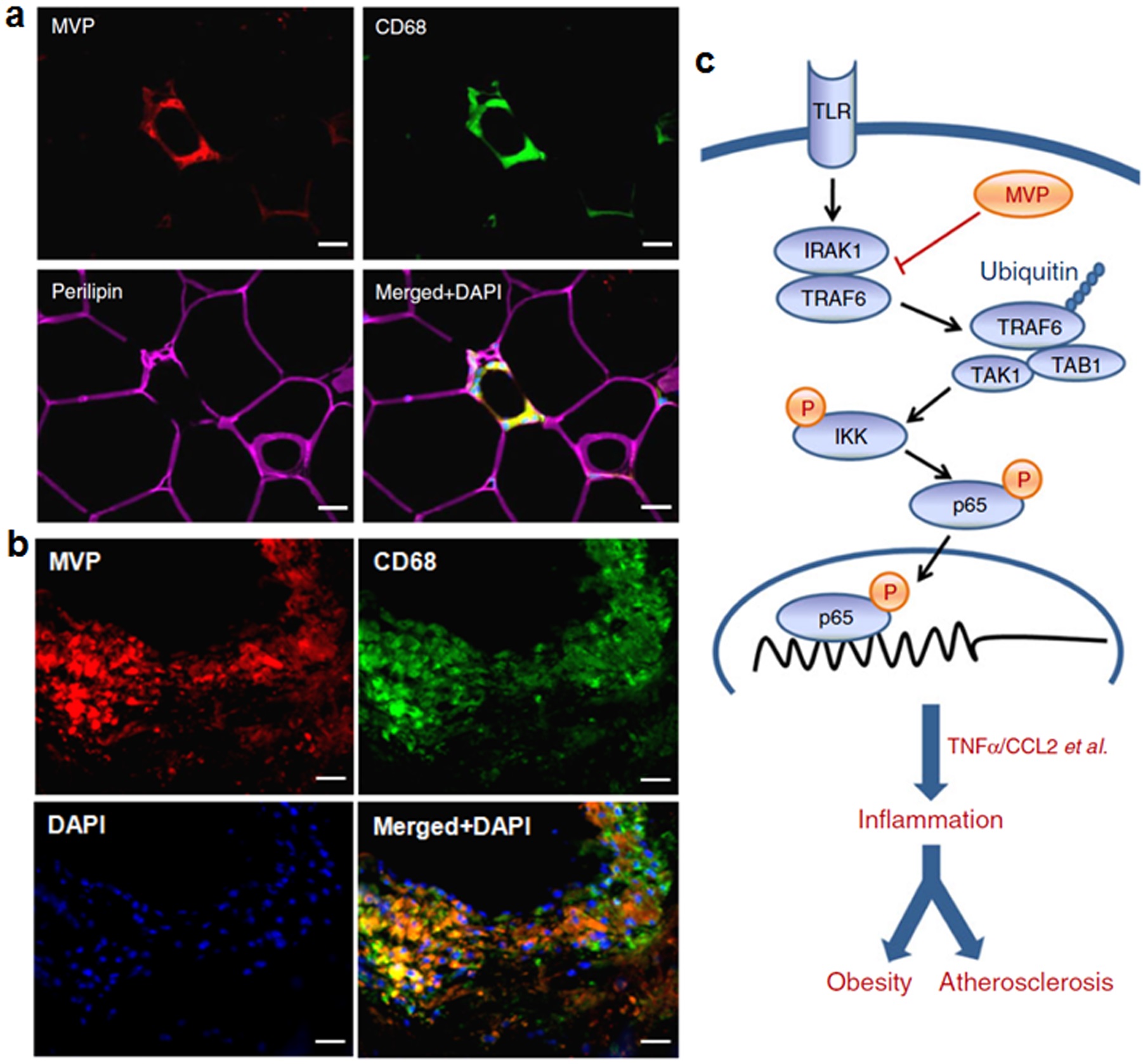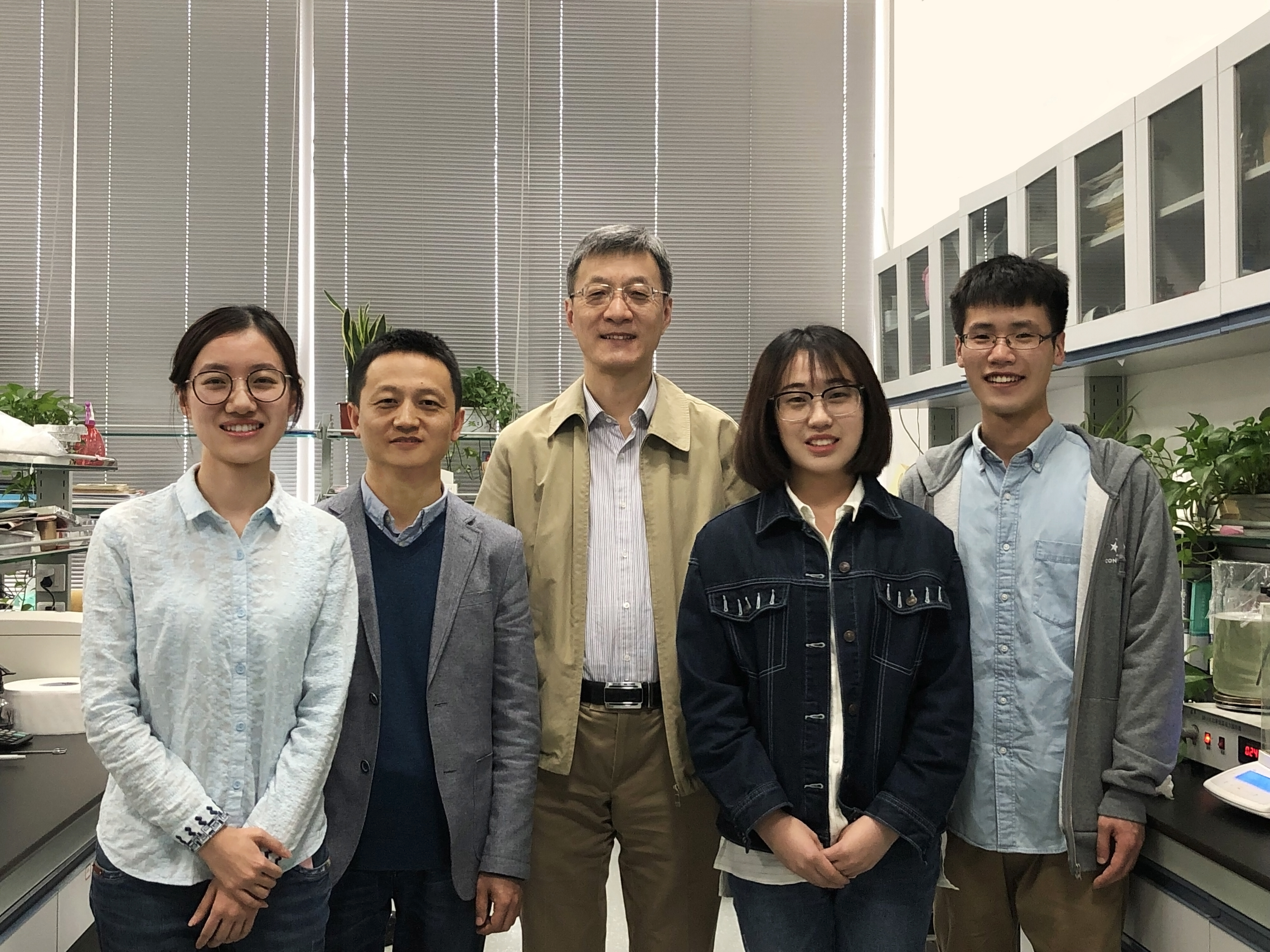

The worldwide prevalence of obesity imposes a growing public health burden. It promotes the development of many metabolic diseases including type 2 diabetes, nonalcoholic fatty liver and atherosclerosis by inducing a metabolic inflammatory response. Macrophage is one of the important immune cells orchestrating chronic inflammatory responses in metabolic diseases. However, the specific intrinsic negative regulation mechanisms remain incompletely understood.
Pro. Qi Chen's work finds that macrophage major vault protein (MVP), the major component of vaults, may act as an intrinsic inflammatory gatekeeper in macrophages to regulate obesity-associated metabolic disorders and atherosclerosis. Mechanistic studies reveal that MVP interacts with TRAF6 preventing its recruitment to IRAK1 and subsequent oligomerizationand ubiquitination, consequently inhibiting the inflammatory response mediated by the IKK-NFkB signaling pathway. This finding reveals for the first time that the macrophage MVP functions as a crucial constraint for metabolic inflammation, in which it attenuates obesity-associated metabolic disorders and atherosclerosis. Identification of autonomous regulatory mechanism is of especially importance for understanding the nature of inflammatory response. This will hopefully open the door to the development of more effective intervention strategies for the metabolic diseases.
This work is published in Nature Communications on April 17, 2019. The authors are Jingjing Ben, Bin Jiang, Dongdong Wang and Qingling Liu et. al. This work is supported by grants from the National Natural Science Foundation of China, Natural Science Foundation of the Jiangsu Higher Education Institutions and Collaborative Innovation Center for Cardiovascular Diseases Translational Medicine of Jiangsu Province et al.



